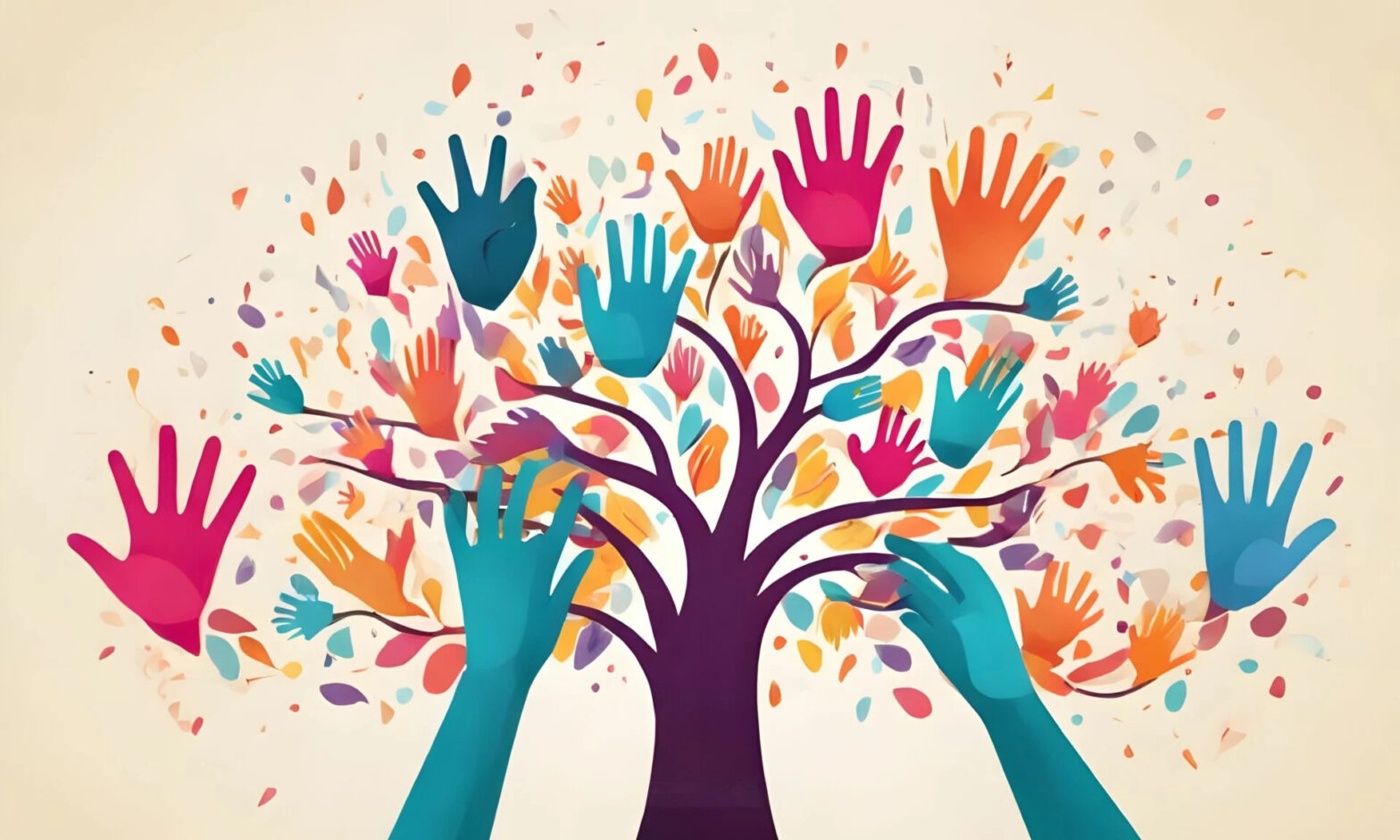As we have seen in the previous blog post, organic solidarity is key on the road to more conscious and democratic societies. This is particularly important because it also allows for more advanced and just societies. And earlier, as well as in the book itself, it has already been argued that social justice and the reduction and minimization of inequalities is not a matter of mere kindness and humanity, but a common interest of all of us in creating a stable society and civilization that is sustainable in the long run.
That is why it is not a bad idea to look at the relationship between organic solidarity and social justice, as sociologist Émile Durkheim did at the turn of the 19th and 20th centuries. The prominent scientist already recognized at the time that organic solidarity and an efficient division of labor go hand in hand, but that this can only be achieved if the division of labor is not imposed but spontaneous. Unbridled social inequalities, however, heavily distort both market prices and wages, as actors with fundamentally different purchasing power compete with each other. (See the current trends of the real estate market or the labor market in general.) As a result, people’s equality of opportunity is also gravely undermined, even if they exist nominally or legally in a society.
In order to resolve this, Durkeim draws attention to the relationship between distributive justice and commutative justice, insofar as both must be equally guaranteed in a society in order to minimize inequalities. While distributive justice obviously refers to the equitable distribution of available goods and resources and opportunities, commutative justice is about the interwoven relationships of the members of a community through the alignment of activities, respecting the principle of reciprocity, i.e. it basically expresses interdependence and mutual interests. The latter is therefore, at its core, justice in the relations between individuals, which includes the fair exchange of goods and the fulfillment of contractual obligations.
However, in a society where material wealth and social position dominantly reflect social connections, access to capital and political power rather than virtues such as diligence, moderation and honesty, it is practically natural that the ethics of money-making and money-taking replace the ethics of personal responsibility. And such a political, economic, cultural and social environment inevitably undermines values such as transparency and accountability, which are essential for both a well-functioning economy and a stable and thriving civil society. And if so, a weak or less conscious civil society will have little or no ability to hold leaders to account for social justice…
It is therefore not at all surprising that in a society that allows extreme social inequalities, people have very different wealth and social status at their birth already. But if hard work, prudence and honesty fail to get us ahead in life and at least partially fulfill our goals and allow our self-actualization, our attention is often diverted from what really matters to status symbols and identity issues. But by constantly benchmarking ourselves against others in terms of income, wealth and success, we are much more likely to exacerbate existing inequalities than to promote justice and stability in society.
Although such a system cannot be sustained indefinitely, it can, through distorted, material rather than human values and ideological indoctrination, create social relations that ensure people’s obedience by imposing the necessary status quo. After all, if the majority believes that the playing field is level and prices are fair, there is no risk of rebelling against perceived injustice. In this light, it is perhaps not difficult to see why societies with extreme inequality tend to create an ideology of equal opportunities and fair prices (including the sacrosanct law of supply and demand), without which the existing reality might seem too unfair and intolerable for many.
However, the unilateral defense of private property against common interest clearly serves to maintain the social class system and to pigeonhole people by endorsing and encouraging the very existential opportunism that is one of the main obstacles to the emergence of truly developed and civilized societies. It must be seen that the over-protection of individual personal rights essentially allows for unlimited accumulation and extreme wealth disparities, while the question of where exactly private property itself comes from is virtually taboo in today’s Western-style economies and societies. Thus, even though it would be crucial that rewards are based on real merit and shared values, it is essentially the current opportunistic socioeconomic and political hierarchy that determines our lives and our relations with each other, with the help of the distorted value system and nominal equality imposed on us.
While it is a fact is that a highly developed society must provide real opportunities for self-actualization for all its members, they should not do that at the expense, but in cooperation with others, in a spirit of reciprocity and organic solidarity. At the same time, democracy should not mean that everyone has the right to vote in elections and to accumulate wealth as they please, but that everyone is truly given the opportunity to participate as equally as possible in the management of common affairs and to secure their own well-being. To achieve this, however, we need a more nurturing kind of society in which humanity and justice are fundamental, and where inequalities are not allowed to run rampant.
And while individualism must be supported to some extent in order to ensure that our diversity enables democratic institutions to work, an effective division of labor and the progress that is essential for a healthy society, our common concerns and global problems can only be solved by thinking in terms of mutuality and cooperation, rather than by pursuing our individual interests exclusively or primarily. If only because we are all ultimately dependent on each other and the natural environment that we have been given here on Earth…
